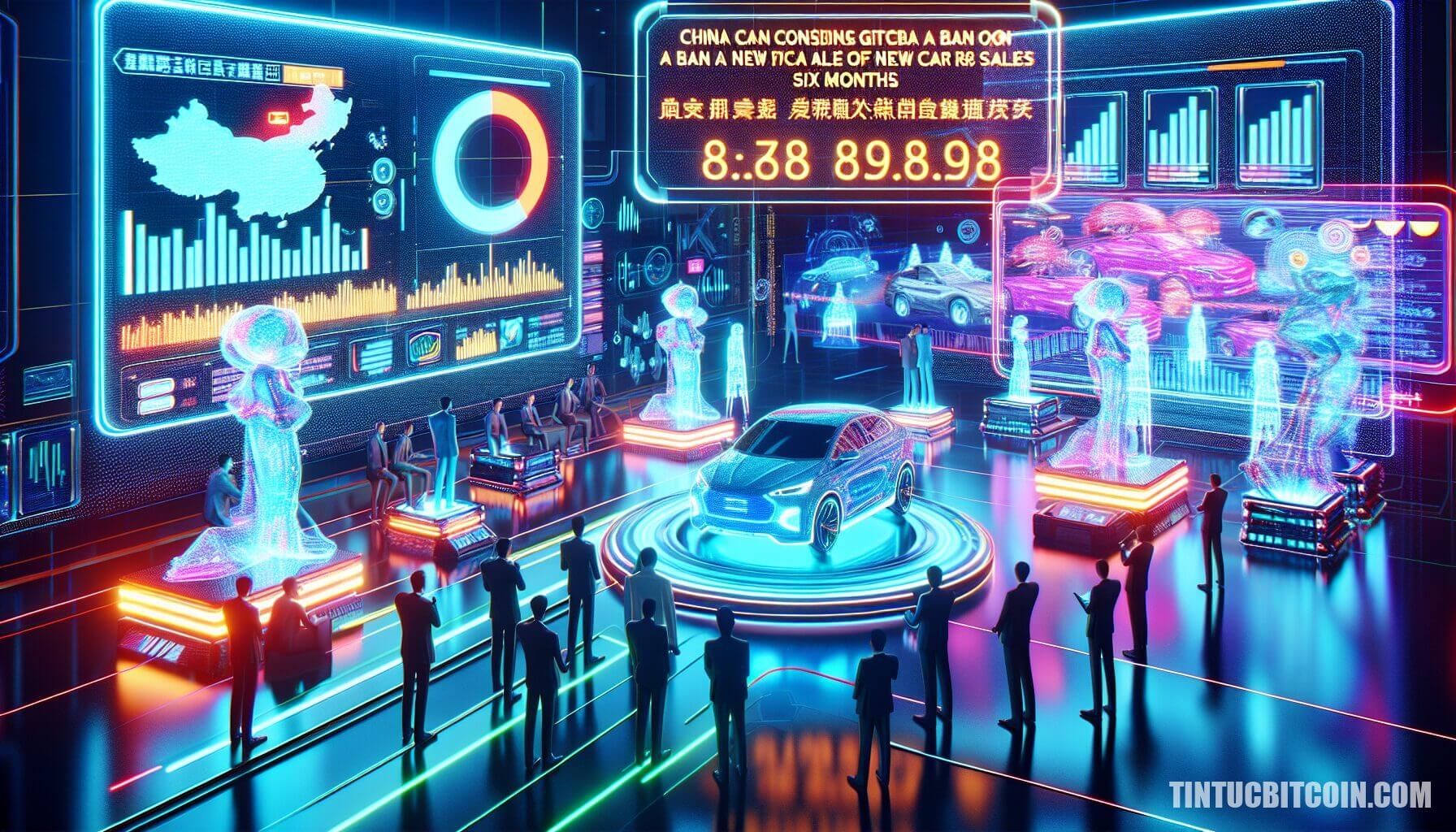
China is considering banning the transfer of newly registered cars within six months to prevent fraud associated with 'non-rolling' vehicles, which distorts the market.
This regulation aims to reduce situations where manufacturers and dealers register insurance in advance and then resell vehicles to inflate sales figures, putting pressure on the fiercely competitive electric vehicle market in China.
MAIN CONTENT
The Chinese government plans to ban the resale of new cars within six months to eliminate 'non-rolling' vehicles.
Many major electric vehicle manufacturers like Zeekr and Neta have been found using pre-insurance tactics to inflate sales figures.
The regulation will help enhance data transparency and force dealers and manufacturers to compete more fairly in the EV market.
Will China really impose a six-month ban on reselling newly registered vehicles?
In July 2025, the Ministry of Industry and Information Technology of China introduced a plan to ban the resale of registered vehicles within six months to prevent the exploitation of virtual sales data through non-rolling vehicles.
This is the government’s first decisive response to address the fierce competition and prevalent fraudulent practices in the electric vehicle market. This strict ban will prevent manufacturers and dealers from achieving 'virtual growth' by registering and insuring vehicles before delivering them to customers.
Using 'non-rolling' vehicles to inflate sales is undermining the stability of the automotive industry. A six-month resale ban will effectively restore market transparency.
Mr. Wei Jianjun, CEO of Great Wall Motor, May 2025
What is the phenomenon of 'non-rolling' vehicles and what impact does it have?
'Non-rolling' cars are those that have been registered and insured but have never been used or transferred by the owner. This behavior allows manufacturers to report higher sales but carries legal risks and distorts the market.
Manufacturers and dealers register vehicles and purchase insurance in advance to record sales figures, then look for ways to sell or internally transfer them, leading to inaccurate sales metrics and eroding consumer trust.
How are Zeekr and Neta accused of inflating sales through pre-insurance tactics?
A Reuters report (July 2025) revealed that Zeekr and Neta – two leading electric vehicle brands in China – used pre-insurance tactics to inflate sales figures. Neta pre-insured over 64,000 vehicles from 2023 to Q1 2024, accounting for over 50% of reported sales.
Customers often do not know that the vehicle has been insured and only find out when the insurance expires early. Dealers confirm they are under pressure to clear inventory, explaining the early expiration of insurance as a 'free offer'. Neta is in the process of bankruptcy, with sales in Q1 2025 down to about 1,200 vehicles.
Zeekr also shows similar signs, with a state distributor in Xiamen registering insurance for 2,737 vehicles in one month, but in reality only 271 vehicles were issued license plates and delivered to customers.
Inflating figures through pre-insurance creates unfair pressure and destabilizes the market. It's time for the automotive industry to be more transparent and adhere to real rules.
Mr. Li Wei, automotive industry analyst in China, July 2025
What measures are the authorities and associations taking to prevent this?
China has committed to enhancing oversight of the automotive market, with stricter regulations and penalties for violating dealers, such as penalizing those with unregistered vehicles not sold. The China Automobile Dealers Association has proposed implementing a tracking code system for exported used vehicles to avoid policy loopholes.
These adjustments aim to reduce fraud, restore consumer trust, and support manufacturers in competing healthily in the world's largest EV market.
How do different manufacturers use the 'pre-insurance' tactic?
Manufacturer Fraud Method Sales Impact Current Status Neta (Zhejiang Hozon) Pre-insured over 64,000 vehicles from 2023-2024 Over 50% of sales during that time Company in bankruptcy, Q1 2025 sold only 1,200 vehicles Zeekr (Geely Auto) Pre-insured vehicles, only 271/2,737 registered with real license plates Inflated sales at the end of 2024 Denied rumors from Zeekr
Frequently Asked Questions
1. Why is China banning the transfer of new vehicles for six months?
The ban aims to prevent fraudulent sales behavior by reselling insured but unused vehicles, helping to create a more transparent and fairer competitive market.
2. What is the phenomenon of 'non-rolling' vehicles?
These are vehicles that have been registered and insured but not delivered to customers, only used to create virtual sales or exploited by internal staff.
3. How do the two electric vehicle manufacturers Zeekr and Neta commit fraud?
They register insurance for tens of thousands of vehicles before selling to report large sales figures, even though customers have not actually received the vehicles.
4. What measures is China taking to address fraud?
The Ministry of Industry is increasing oversight, penalizing violating dealers, and proposing a tracking code system for exported used vehicles.
5. When will the resale ban take effect?
No exact date yet, but it is expected to be implemented from 2025 and last at least six months from the vehicle registration.
Source: https://tintucbitcoin.com/trung-quoc-can-nhac-cam-ban-xe-moi/
Thank you for reading this article!
Please Like, Comment, and Follow TinTucBitcoin to stay updated with the latest news in the cryptocurrency market and not miss any important information!



